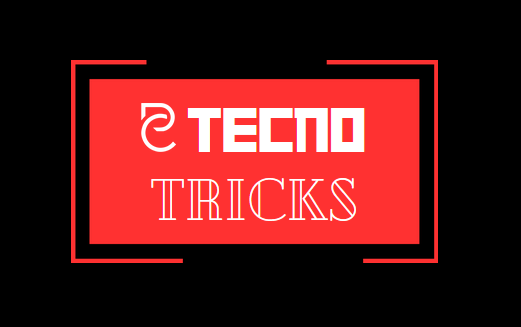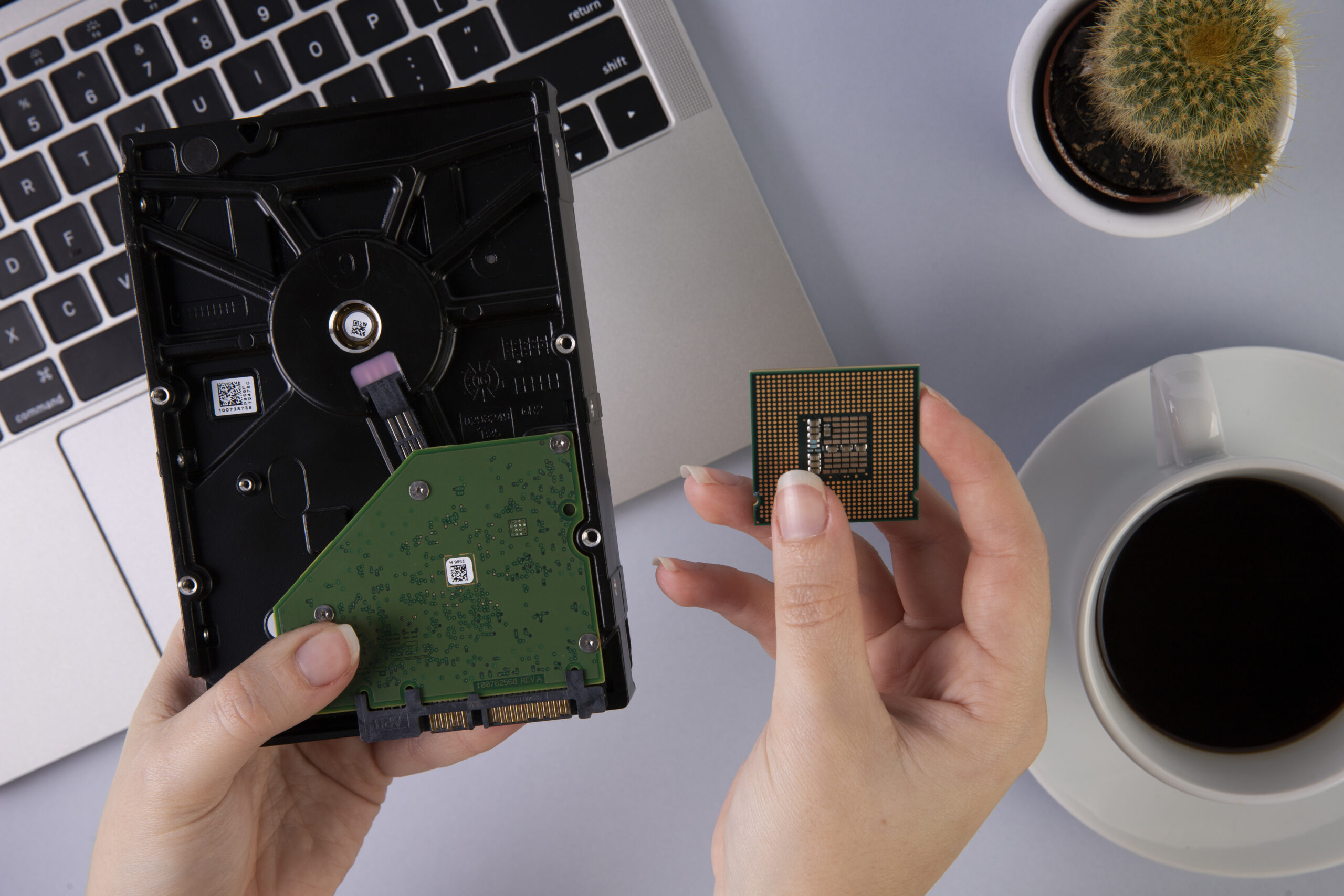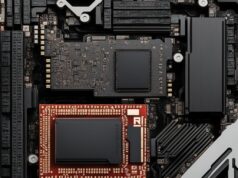When you hear the term “GPU”, what’s the first thing that comes to mind? For many, it’s gaming graphics, but GPUs are so much more than that. Sure, they play a crucial role in rendering lifelike visuals in your favorite games, but their significance extends far beyond gaming. In this guide, we’re going to delve into the world of GPUs, exploring their inner workings, applications, and why they’re an essential component in modern computing.
Understanding GPU Technology
At its core, a GPU, or Graphics Processing Unit, is a specialized electronic circuit designed to rapidly manipulate and alter memory to accelerate the creation of images in a frame buffer intended for output to a display device. Sounds complex, right? Let’s break it down.
Think of your computer’s CPU (Central Processing Unit) as the brain, handling tasks like arithmetic, logic, and control. Now, imagine your GPU as the muscle, responsible for handling graphics-intensive tasks like rendering images, videos, and animations. While CPUs are adept at handling a wide range of tasks, they can be sluggish when it comes to graphics processing due to their general-purpose design.
Enter the GPU, with its parallel processing architecture optimized for handling thousands of repetitive tasks simultaneously. This parallelism enables GPUs to excel at tasks that require massive amounts of computation, such as rendering 3D graphics, processing large datasets for scientific research, and accelerating artificial intelligence algorithms.
Now, let’s talk about choosing the right GPU for your needs. It’s not just about picking the one with the highest number of CUDA cores or the fanciest RGB lighting (although that’s a nice bonus). It’s about understanding your specific requirements and finding the best match.
When it comes to selecting a GPU, there are several factors to consider:
- Performance: What tasks will you primarily be using the GPU for? If you’re a hardcore gamer, you’ll want a GPU with high gaming performance. If you’re a data scientist or content creator, you’ll need a GPU optimized for tasks like machine learning or video editing.
- Budget: GPUs come in a wide range of price points, from budget-friendly options to top-of-the-line models that cost an arm and a leg. Determine how much you’re willing to spend and find the best GPU within your budget that meets your performance requirements.
- Compatibility: Make sure the GPU you choose is compatible with your existing hardware, including your motherboard, power supply, and case size. You don’t want to buy a GPU only to realize it doesn’t fit in your PC case or requires a higher wattage power supply than you have.
So you thought GPUs were only useful for gaming and graphics? Think again! While it’s true that GPUs excel at rendering stunning visuals in video games, their applications go far beyond gaming. In this section, we’re going to explore the diverse range of industries and fields where GPUs play a crucial role, from artificial intelligence to scientific research.
GPU Applications and Usage
Gone are the days when GPUs were confined to the realm of gaming consoles and high-end PCs. Today, GPUs are ubiquitous, powering everything from self-driving cars to medical imaging systems. Let’s take a closer look at some of the key areas where GPUs are making a significant impact:
- Artificial Intelligence (AI): In the realm of AI, GPUs are indispensable. Their parallel processing capabilities make them ideal for training deep learning models, which are at the heart of many AI applications, including image recognition, natural language processing, and autonomous vehicles.
- Data Science: When it comes to processing large datasets and performing complex computations, GPUs are the go-to choice for data scientists. Whether it’s analyzing financial data, simulating weather patterns, or predicting customer behavior, GPUs can crunch numbers faster and more efficiently than traditional CPUs.
- Graphic Design and Animation: While this may seem like an obvious application, the role of GPUs in graphic design and animation cannot be overstated. From rendering lifelike 3D animations to designing photorealistic visuals, GPUs are the backbone of the creative industry.
- Scientific Research: In fields such as physics, chemistry, and biology, GPUs are revolutionizing the way scientists conduct research. Their immense computational power allows researchers to simulate complex phenomena, analyze massive datasets, and accelerate the pace of discovery.
Now that we’ve explored the myriad applications of GPUs, let’s talk about how to choose the right one for your needs.
Choosing the Right GPU
With so many options available on the market, finding the perfect GPU can feel like searching for a needle in a haystack. But fear not! By considering a few key factors, you can narrow down your options and find the GPU that’s right for you:
- Performance: What tasks will you primarily be using the GPU for? If you’re a hardcore gamer, you’ll want a GPU with high gaming performance. If you’re a data scientist or content creator, you’ll need a GPU optimized for tasks like machine learning or video editing.
- Budget: GPUs come in a wide range of price points, from budget-friendly options to top-of-the-line models that cost an arm and a leg. Determine how much you’re willing to spend and find the best GPU within your budget that meets your performance requirements.
- Compatibility: Make sure the GPU you choose is compatible with your existing hardware, including your motherboard, power supply, and case size. You don’t want to buy a GPU only to realize it doesn’t fit in your PC case or requires a higher wattage power supply than you have.
Final Verdict
When it comes to choosing the right GPU, there’s no one-size-fits-all solution. It ultimately depends on your specific needs, budget, and compatibility requirements. Take the time to research different GPUs, compare their features and performance benchmarks, and consider how they align with your usage scenario. By doing so, you can find the perfect GPU that meets your needs and unlocks new possibilities for your computing experience.
FAQs
- What is the difference between a GPU and a CPU? GPUs are specialized for rendering images and handling large volumes of repetitive tasks simultaneously, whereas CPUs are more versatile and handle a wide range of tasks, including running applications and executing instructions.
- Can I use a gaming GPU for data science tasks? Yes, many gaming GPUs are also suitable for data science tasks due to their high computational power and parallel processing capabilities. However, it’s essential to ensure compatibility with the specific software and algorithms you’ll be using.
- Do I need a dedicated GPU for graphic design? While integrated graphics can handle basic graphic design tasks, a dedicated GPU is recommended for professional graphic design work due to its superior performance and rendering capabilities.
- How often should I upgrade my GPU? The frequency of GPU upgrades depends on your usage and budget. For gamers who want to play the latest titles at high settings, upgrading every few years may be necessary. However, for users with less demanding tasks, a GPU can last several years before needing an upgrade.
- Can I use multiple GPUs in a single system? Yes, many motherboards support multiple GPU configurations, allowing you to harness the power of multiple GPUs for increased performance. This is commonly used in tasks like gaming, video editing, and scientific computing. However, it’s essential to ensure compatibility and sufficient power supply for multiple GPUs.





